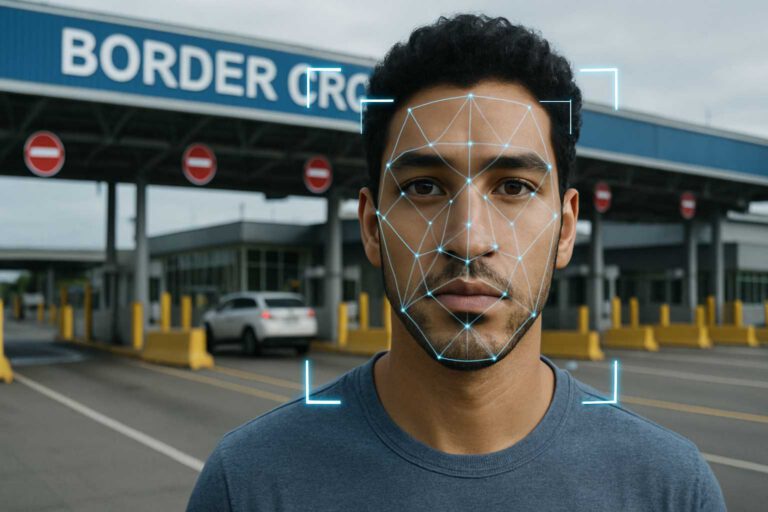The rise of Fortress USA continues under the Trump administration. The U.S Customs and Border Protection (CBP) agency is looking to increase its surveilance capabilities at land border crossings.
This means crossings via road, or bridge – mainly affecting the millions of people who cross legally into the USA for work or pleasure.
The CBP has released a request for information (RFI) to tech companies to develop a system that photographs all occupants of a vehicle and cross check them in real time against information held in their databases. This system will apply vehicles entering and exiting the USA.
So far early tests have raised issues with the accuracy of current technology. A test running from 2021 to 2022 showed cameras captured all occupants only 76% of the time, and out of the images captured only 81% percent were good enough to be used for biometric validation against stored information. Considering there are around 350 million land crossings per year between USA and Mexico alone – it looks like theres still a long way to go for this technology to be viable for a wider scale roll out.
Privacy advocates such as Dave Maass, Director of Investigations at the Electronic Frontier Foundation have raised concerns, saying “The primary risk here, is the system failing to recognize that someone matches their own documents.”
This could undoubtedly lead to increased delays at the border, and more seriously increased false positives which take border protection and law enforcement resources away from tackling real border crossing issues.
The RFI is the latest attempt as part of a long held ambition to increase border surveilance, especially in light of mandates arising from the Enhanced Border Security Act 2002.
CBP has experienced mixed success so far, but most prominent are the repeated data breaches by the companies contracted to deliver software. In 2019 a company called Perceptics had a significant data leak exposing sensitive traveller data. Questions have also been raised about the ethics of other companies providing services, such as Palantir, who received $30 million to work on a license plate recognition system.
The CBPs desire for more data on entrants to the USA has raised conflicts between national security and individual privacy and civil liberties. Travellers into the USA are already subject to some of the most stringent checks amongst all the developed nations, and there has been an increase in arbitary detentions and deportations of foreign nationals from countries with low visa requirements.
It will be interesting to see how this plays out. As for air passengers, we are already screwed. If we want to visit the good old USA, theres no choice but to stand in line and take whatever the border agency officer decides to give.

